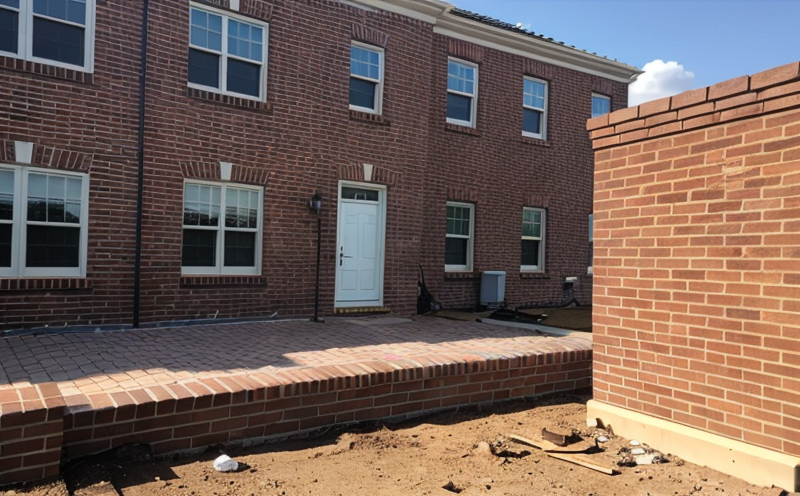ISO 10545 Heat Resistance of Masonry Materials
The ISO 10545 series is a set of standards that determine the heat resistance properties of masonry materials. This service specializes in testing according to ISO 10545-1, which evaluates the dimensional stability and compressive strength retention after exposure to high temperatures.
During this process, specimens are subjected to controlled heating conditions, typically reaching temperatures between 900°C and 1200°C. The tests assess how these materials maintain their structural integrity under extreme heat, which is crucial for applications in the building and infrastructure sectors where durability and safety are paramount.
The significance of this test lies not only in its contribution to understanding material performance but also in ensuring compliance with international standards that govern construction practices. This service supports clients by providing accurate and reliable data that can influence decisions on material selection for projects involving high-temperature environments, such as kilns, ovens, or industrial facilities.
The testing procedure involves carefully preparing samples according to the specified dimensions and ensuring they are representative of the materials used in construction. The specimens are then exposed to controlled heating conditions until reaching a predefined temperature, after which they cool down slowly under specified conditions. Post-test measurements compare the initial dimensions with those after heat exposure.
The compressive strength test assesses how much pressure can be applied before a sample fails under load. This is critical for assessing the structural reliability of masonry materials subjected to high temperatures. The results help in determining whether the material retains its mechanical properties post-heat treatment, which is essential information for project planning and safety assessments.
In summary, ISO 10545 heat resistance testing ensures that masonry materials meet the required standards for performance under extreme conditions. This service offers comprehensive support to ensure compliance with international standards and contributes significantly to ensuring the quality and reliability of construction projects involving high-temperature environments.
Industry Applications
| Application Sector | Specific Use Case |
|---|---|
| Kiln and Oven Design | Evaluating the durability of refractory materials used in high-temperature applications. |
| Industrial Furnace Construction | Assuring that masonry materials can withstand prolonged exposure to extreme temperatures. |
| Hospitality and Retail Buildings | Ensuring the integrity of fire-resistant walls and partitions in commercial spaces. |
Quality and Reliability Assurance
- Dimensional Stability: Ensuring that materials maintain their size and shape under heat.
- Compressive Strength Retention: Assessing the ability of materials to retain their load-bearing capacity after thermal exposure.
- Durability Assessment: Evaluating how well materials withstand repeated cycles of temperature changes.
International Acceptance and Recognition
The ISO 10545 series is widely recognized across the globe, particularly in regions where compliance with international standards is mandatory. This service ensures that clients receive results that are accepted by regulatory bodies worldwide.
Our testing facilities are equipped to meet the stringent requirements of this standard, providing accurate and consistent results. Compliance with ISO 10545-1 is essential for manufacturers aiming to export their products globally or those seeking certification from international organizations.





